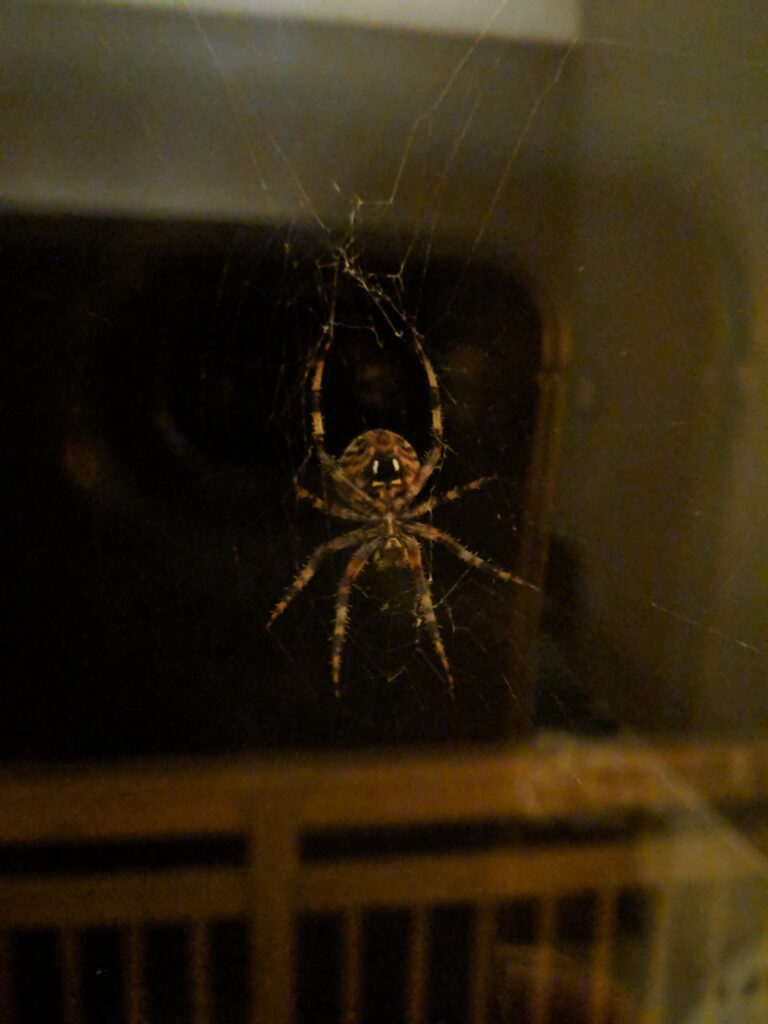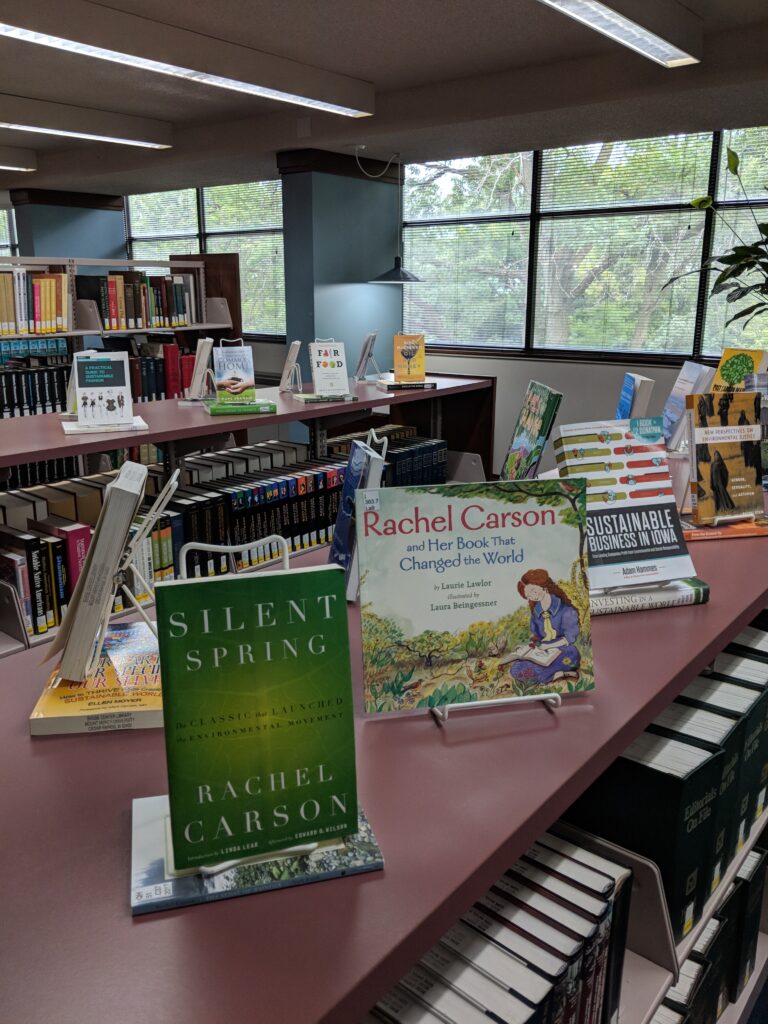This is the first in a series of articles highlighting how Mercy is addressing the 7 goals of the Vatican's Laudato Si Action Platform.
By Dr. Joy Ochs, Professor of English at Mount Mercy University, Cedar Rapids, Iowa
“There is a nobility in the duty to care for creation through little daily actions.” (Laudato Si’ , para. 211)
Moving into the dorms on the first day of sophomore year, my roommate and I entered our room to discover that a screen had fallen from the window during summer break and an alarming number of spiders had made their home in the open window frame. After we both let out a little scream, her first thought was to call the exterminator and have our room sprayed. I was no fan of spiders, but the thought of filling our tiny living space with pesticides didn’t feel right. To prevent the pollution of our environment, I shakily proposed a different solution: I offered to capture each spider and remove it from our room back to the outdoors. Three spiders into this endeavor, my roommate began to calm down. Ten spiders in, she began coaxing a spider into an empty cup so I could carry it outside. As I released the 27th spider into the shrubbery, we were relaxed and laughing that no spider would ever scare us again. We had improved our environment, saved 27 tiny lives, and transformed ourselves in the process.

Saving the spiders was a conversion experience of sorts, guiding the next 30 years of my journey to live more in harmony with Earth. Pope Francis invites us to “become painfully aware (LS, para.19) of how far out of harmony we usually are. As a sustainability advocate and teacher, I am often asked what one can do to live more sustainably. The answer is much more complicated than compiling a list of action items. Living sustainably requires a self-interrogation about who we want to be as denizens of Earth and members of the human family. Sitting with the painful awareness is a first step in developing an ecological consciousness.
We know that the harms of an unsustainable lifestyle are manifold. Conventional habits of American consumer behavior are degrading Earth. Cheap manufacturing means emitting toxins into air, water, and soil. The demand for cheap goods fuels the exploitation of laborers in sweatshops, cobalt mines, and electronics factories. The near constant demand for cheap energy drives carbon pollution, climate change, and wars over oil. The rapacious use of natural resources destroys ecosystems, driving the extinction of beloved species. When I look at the harms, ecological consciousness comes down to one thing for me: I can’t bear to contribute to all that. Yet I am also aware that this is the system we live in. The goal then, is to reduce my individual contribution to the harms while also exerting pressure to change the system.

When I ask my students to read Laudato Si’, time and again they feel drawn towards ecological consciousness. They appreciate the call to shift from the accepted fiction that overconsumption is normal and to reimagine an ethic of care for Earth: Step out of the accelerating stream of consumerism. Take a moment to recenter your values before choosing how to act. Slow down. Make considered choices. This process of reflection and discernment feels a bit like preparing for Lent, except that relinquishing heedless consumerism feels a lot more satisfying than giving up chocolate for a month. (I once pledged to give up single-use plastic for Lent and discovered it is nearly impossible; that stuff is everywhere).
Choosing to live sustainably has become, for me, a form of non-violent protest against consumerism. Every time I reject fast fashion and buy second-hand clothes, every day that I don’t buy petroleum for my electric car, every time I hang my laundry in the sunshine, every meatless Monday, every time a songbird lands on my feeder I feel a sense of spiritual well-being. These actions spring from a mindset that Earth is a beautiful place, worthy of care, that all people deserve environmental justice, and that every creature should be respected—even the spiders. As we celebrate Earth Day, I hope that others will make the shift to ecological consciousness, too.
Question for reflection: How have you been inspired to live more sustainably?
To engage with Mercy’s advocacy efforts on environmental issues, sign up for our action alerts.
Take Action With Mercy